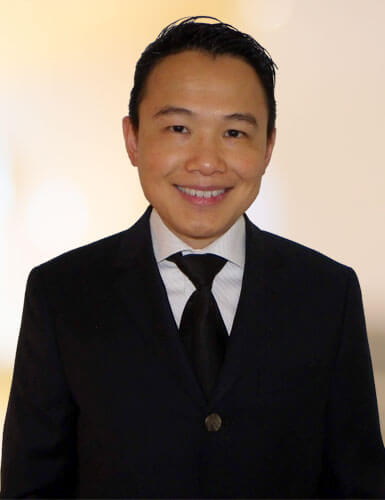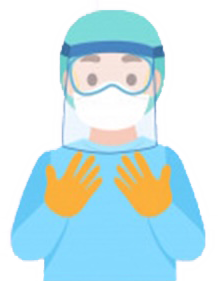The Secret to Establishing a Teeth-Cleaning Routine
Posted: February 26, 2021
Last Modified: February 22, 2021

Life is challenging. From early mornings to late nights, it can be hard to plan ahead for everything life throws at you. Perhaps work takes longer than you think it will, or your alarm doesn’t go off when it should. Minutes can get shaved off, and you don’t notice until it’s time to decide whether you steal an extra three minutes of sleep or whether you floss that evening.
The patients we’ve seen with the best long-term cleaning habits tell us that the secret to their success is precisely that: to make good dental hygiene a habit. That way, you don’t stop to think in the evening about whether you want to brush the full two minutes or not. You just do it. Of course, as nice as this idea, talking about a habit and developing a consistent routine are two different things.
Today, we’re going to help you overcome that hurdle. It’s time to make a positive, long-term change for yourself and your teeth – and we’re going to walk you through each and every step.
Why is a Routine Important?
Just like a routine dental cleaning from your dentist is vital for the continued wellbeing of your teeth, routine at-home care is absolutely essential for your long-term oral health. When tooth care isn’t a habit, it’s easy to forget about or put to the side. Sure, you reason, you didn’t floss today, but you’ll just floss tomorrow, right? And then you don’t do that, either.
When you establish a regular routine, you effectively hack your brain into doing what you want to do without any of that finicky push-back of, “But I’m too tired” or “I don’t feel like it.” Instead, you’ll have trained yourself to walk into the bathroom, blinking the sleep out of your eyes, and reach immediately for your toothbrush.
1. The Importance of Precision
For a routine to be most effective, you need to be very precise with what you want yourself to do. The bare minimum for effective teeth care is:
- Two minutes of tooth brushing, twice a day
- Flossing between every tooth at least once a day
Your challenge comes in figuring out when you’re going to do these things, and how you’re going to train yourself to do them right. For example, most adults brush for only about 45 seconds, so how are you going to keep yourself to two minutes every time?
Electric brushes frequently have a two-minute timer built into them, so just hit the button and off you go! Some even have Bluetooth-enabled accessories or apps that tell you when you’re done. The most high-end brushes not only tell you how long you’ve brushed, but also how well – by measuring the pressure used throughout the brushing period. This enables people to brush for long enough and not too hard/softly. If all that sounds too high-tech, you can find a song you like that’s two minutes long and play that while you brush your teeth.
Of course, you don’t have to forever time yourself while tooth-brushing. Once the habit is established, you’ll have an instinctive sense of whether you’ve brushed long enough or not. That said, if you want to keep the habit of starting your day to “R.E.S.P.E.C.T.” by Aretha Franklin, we’re definitely not going to stop you.
2. Start With a Month
The official time it takes to cement a habit is around 66 days, according to a study from University College London. However, once you overcome the first two or three weeks of that time period, the rest falls into place easily. That’s why we recommend starting with a goal of a single month: easy to track, not too much of a commitment, and still long enough to be effective.
Pick a starting day that will be easy to count forward from, like starting on the 1st of a month or the 15th. Once you know when you’re going to start, it’s time to kick off. The first few days will likely be the easiest – after all, your goal is fresh in your mind, and you’re committed to seeing it through. After those first few days, you’ll be tempted to skip a day or two.
Don’t do it.
3. Hold Yourself Accountable
At the beginning of your chosen month, start keeping track of your brushing. There are plenty of ways to go about it, so pick one that fits your schedule and lifestyle.
- Hang a simple calendar in your bathroom. Even a single printed-off page is fine – the idea is to have something within arm’s reach that you can mark off. Put a checkmark or a star or whatever kind of mark you like on your calendar every time you brush or floss. It’s much harder to skip your new cleaning routine when you have to look at your calendar and see how far you’ve come already. You can either use a scrap of paper or print off a dedicated habit tracker (there are many different versions available online for free).
- Use an app to keep track of how long/consistently you’ve brushed your teeth. One particularly good one is called Healthy Mouth, by the Kois Center.
At the end of the month, if you’ve successfully stuck with it, celebrate! Buy yourself the book you’ve had your eye on or order takeaway from your favourite restaurant.
Then, make up a fresh tracker and keep going for another month. Although, by that point, you might not even need the tracker anymore.
Take the Next Step With Regular Dental Cleanings
Even if you haven’t finished (or started) your new dental routine yet, there’s something you can do immediately – today – to put yourself on the road to better oral health. Call your family dentist in Barrie and make an appointment for a dental cleaning. Professional dental services like a regular cleaning can remove much more gunk from your teeth than you can reach, which is why they’re essential for continued oral wellbeing.
If you’d like to learn more about our dental services or request a dental cleaning, give us a call at (705) 721-1143. You can also contact us online.


